Types of Houses in Residential Real Estate You Need to Know About
October 27, 2021
The definition of a house has changed from what people historically considered to be a house. Modern housing is now defined in two ways, residential structure and architectural style.
The architectural style is defined by the aesthetic design of the house, meaning the architectural features, contemporary designs, and craftsmanship. Whereas residential structure is defined by the type of building, meaning the house has been built for a single-family, an independent unit, etc.
In this blog post, we’ll go through the different types of housing so that you can narrow down your preferences and find the dream home you’ve been looking for.
Different Types of Housing in Residential Real Estate
1. Townhouse
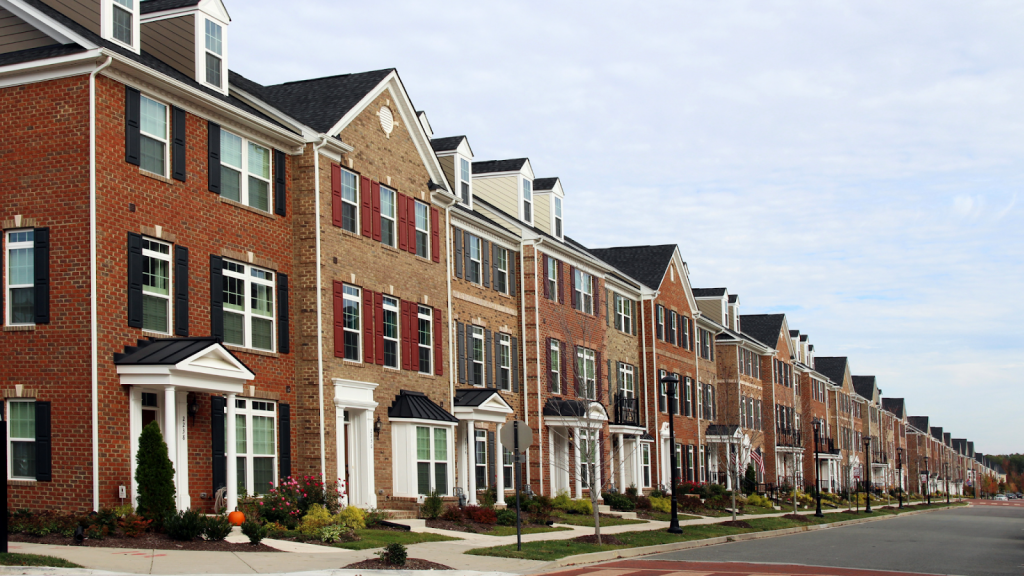
A townhouse is a house where at least one of the walls is shared with another unit. These individually owned houses have separate entrances from the street. They are popular in neighborhoods with limited space, especially in big cities. As the horizontal space is limited, townhouses are structured in a way to make maximum use of the vertical space with multiple stories.
Townhouses are typically located in a community, similar to row homes. They provide shared amenities such as playgrounds, gyms, or basketball courts. The owner of a townhouse is responsible for maintaining the interior and exterior of the property. However, the shared areas are maintained by the HOA (Homeowner’s Association), for which you have to pay HOA fees.
Here are some of the major pros and cons of buying a townhouse:
The Pros To Buying a Townhouse
- They are an affordable housing option for single families.
- You get access to shared amenities like a playground, pool, etc.
- You get to experience a sense of community.
- Townhouses are great value for money.
The Cons To Buying a Townhouse
- There is limited space
- You have less privacy
- You have to bear the added expense of HOA fee
2. Detached (single-family)
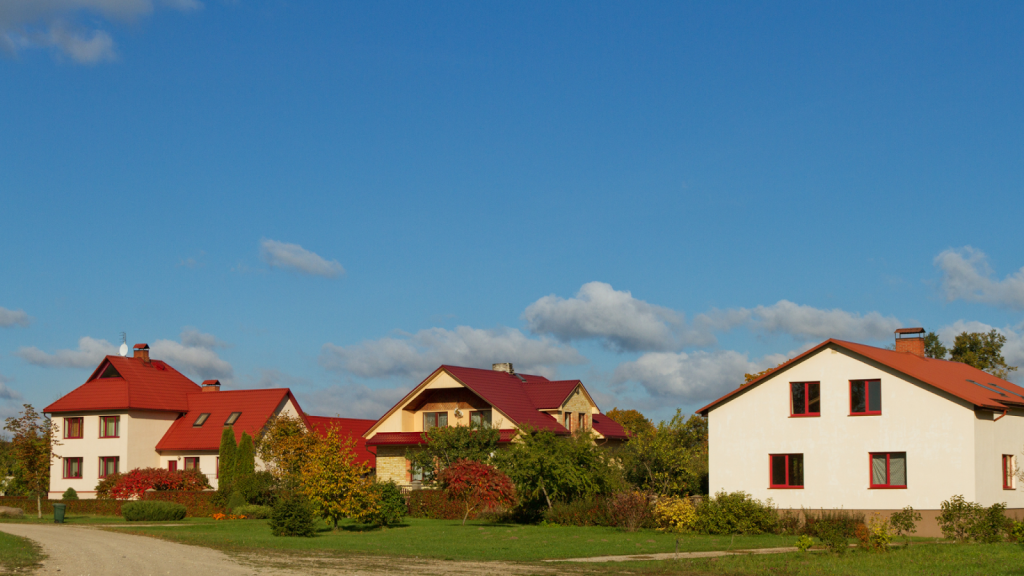
Unlike townhouses, detached houses are completely independent of other housing units in the neighborhood. Although less common in highly populated areas, detached homes make up the majority of housing owned by single families in the U.S.
Detached homes give you more privacy and space in general. Depending upon whether it is located in a planned community or not, detached homes may or may not fall under an HOA.
Mentioned below are the pros and cons associated with buying a detached house:
The Pros To Buying a Detached House
- Detached houses offer more privacy.
- You also have more space in comparison to a townhouse.
- Detached houses also offer more personalization options.
The Cons To Buying a Detached House
- They are costlier when compared to townhouses.
- You have to bear the added cost and responsibility of exterior maintenance.
- You also have to pay more housing taxes for detached houses.
3. Condominium (Condo)
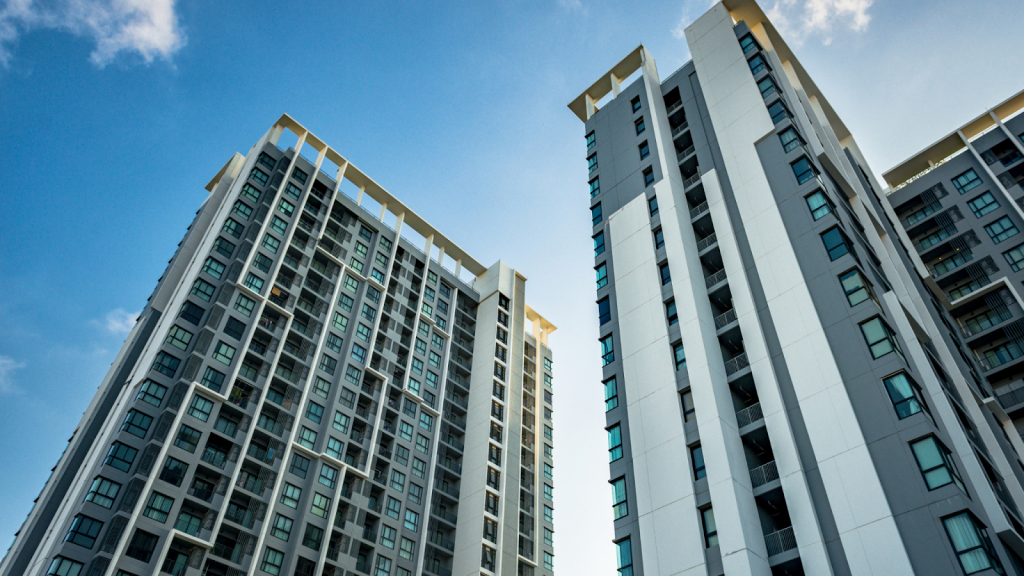
A condo is one of the most popular types of residential properties amongst people who want to be homeowners but don’t want to deal with all of the responsibilities associated with it. Condos are structured much like apartment buildings with multiple housing units present under one roof, sharing one or more walls with neighboring units.
A condo comes with all of the convenience that you expect to get in an apartment. The only difference is that you are the one who’s in charge of all of the maintenance, repair, and upkeep of the interior of the house, instead of the building manager. However, the exterior and shared spaces like stairs, elevators, parking areas, and similar amenities are maintained by the Condo Association or the HOA.
Take a look at the pros and cons of buying a condo below:
The Pros To Buying a Condo
- Condos require less upkeep than townhouse or detached (single-family) homes.
- You have access to amenities like fitness centers when living in condos.
- Condos also offer an added security.
The Cons To Buying a Condo
- You have less privacy while living in a condo unit.
- There is limited space.
- You also have to bear the expense of HOA fees.
4. Tiny Homes
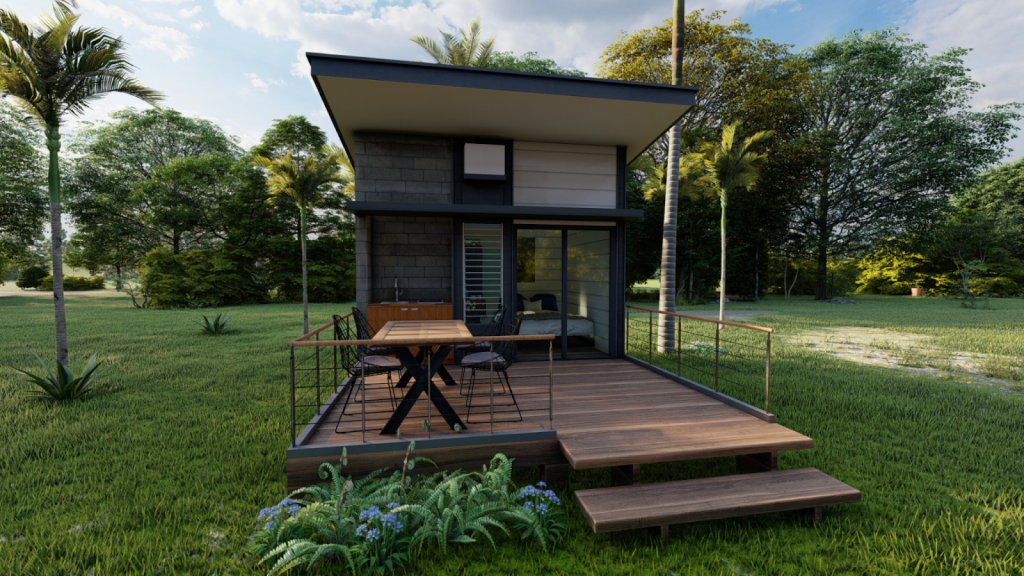
Tiny homes are small spaces, typically less than 400 square feet, that can be permanent or mobile. The trend for tiny homes has gained popularity in recent years, spurring what’s become known as the Tiny House Movement.
A typical tiny home includes all the modern conveniences, including a living room, kitchen, a full bathroom, sleeping area, all packed in a compact floor plan. Unique in their architectural style, affordable costs have been one of the major reasons behind the growing popularity of these compact homes. Tiny homes are popular in particular among single and young couples looking for more financial freedom.
Here’s a list of the pros and cons associated with buying a tiny home:
The Pros To Buying a Tiny Home
- Tiny Homes are affordable.
- They require less maintenance expense.
- They are more environmental-friendly.
The Cons To Buying a Tiny Home
- Getting a mortgage for a tiny home is virtually impossible.
- There is only limited living space.
- communities usually have strict zoning rules for tiny homes.
5. Co-op or Housing Cooperative
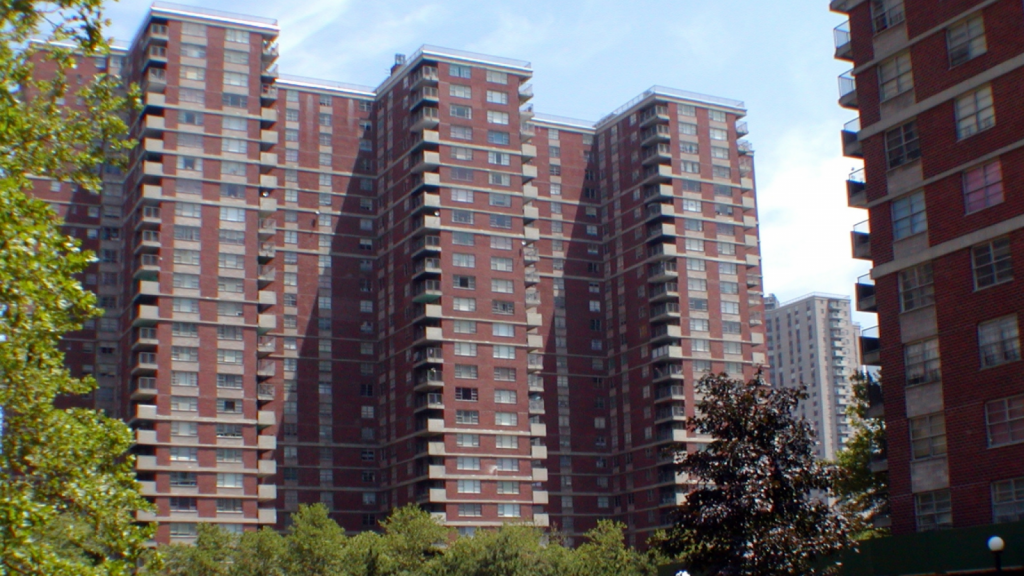
Buying a co-op is like buying the shares of a company, which makes it quite different from the housing options that we’ve discussed above. The space that you will get for the house typically depends upon the number of shares you’ve purchased of the company that owns and operates the building.
Upon acceptance into a co-op, you are entitled to receive patronage dividends, which are generally based on the net earnings of a company. You may get a merchandise discount as well. Although maintenance costs and other fees are split, members of the co-op have to vote for common spaces, making the decision-making process a lot longer.
The most common pros and cons of buying a housing co-operative are mentioned below:
The Pros To Buying a Co-op
- Co-op houses follow a democratic management system.
- They are less expensive than rental apartments.
- You don’t have any direct responsibility of managing the property.
The Cons To Buying a Co-op
- There are restricted loan options.
- You get fewer capital incentives.
- You also have less freedom of customization in co-op homes.
Summing it up
Whether you are planning to buy a house for yourself or as an investment property, the information in this blog post allows you to make a well-informed decision on which type of house best fits your needs. Understanding the different types of housing options is the first step to take when house hunting. Once you understand the various options along with the pros and cons associated with them, you can be more confident in the decision you ultimately make.
All the best!
If you aren’t sure which type of house will best suit your needs, a Negotiator can help you decide what’s best for you. Negotiators are comprised of some of the best real estate agents in the country who all go above and beyond for their clients. They will be able to assist you with all your real estate-related inquiries and will provide you with the best guidance as you buy a home. Learn more about Negotiators here!

